Description of the video:
Hey, everybody. I'm Lauren Ruffin, coming to you from Phoenix, Arizona.
I'm a brown skinned black woman with short hair.
It's a little bit longer on top, kind of
curly today.
I'm wearing blue, round, blue rimmed glasses, a blue shirt, pretty basic.
And I'm in a pretty plain room right now.
Gray ceiling, white background.
But I'm really happy to be with you all here today.
I am here and excited to talk about
challenges and opportunities of securing the
bag in the creative economy.
I'm currently the head of the movement
building office at Yerba Buena Center for the
Arts in San Francisco.
Prior to that, I was one of the co-CEOs of Fractured Atlas.
I think I did that for five or six years.
I just accepted a position at Arizona State University as an associate professor,
teaching world building and visualizing
futures.
And one of the things I think about a lot is sort of how are we going to finance this
future? How are creatives going to make
money?
And so the talk, the title of this talk is
also comes from a hashtag #FYPM, which means
"F- you, pay me." We'll keep it clean, because I
know y'all are a classy audience.
But with that, let's jump in and sort of get
this thing going.
So one of the quotes I think about a lot
is this one that comes out of the education
sector that says "When social systems are in
periods of rapid transformation, the role of
schools becomes contradictory.
They teach knowledge that's no longer
relevant,
socialize people into roles that no longer
exist, and provide mindsets needed to continue
ways of life that are disappearing."
I think we can swap out schools for maybe
art sector or museum or whatever institution
you're working for.
I think a lot about MFA students that
I'm teaching who most certainly have a
feeling that what they're learning is not
going to help them get a job and not going
help them be successful.
I think a lot about curators and curatorial
practices that in recent years are roles that
people sort of think are, sort of serve the
purpose of gatekeeping and keeping
intentionally excluded communities,
intentionally exploitive communities away
from being able to achieve success.
So I hold this sort of quote in my mind a
lot as I'm sort of, as I was thinking about
this particular talk. So what exactly are we
talking about today?
We're going to talk about the evolution of
digital creative communities.
Then we're going to talk about how inequity
flourishes online.
And then also, of course, because I believe
in liberatory practices and sort of a world
that should, a digital world that can be a
lot better than our real world.
How do we get free?
So with that, let's jump into evolution of
the digital creator economy.
The creator economy right now is projected
to hit close to $300 billion in the next two
years. These are some of the platforms that
really I'm thinking about a lot.
So you've got TikTok, which is both a
creator community,
I mean, it's both a creator platform,
meaning you can make videos on it, but you
can also distribute it.
Most folks don't think about LinkedIn as
being a creator platform, but the reality is
a lot of creators are building their brands,
selling courses, finding opportunities to
sort of sell their freelance, sell or
freelance services on LinkedIn.
Instagram, Snapchat, Twitter, Facebook I think we're
all pretty familiar with.
But all of these, sort of, all these platforms
sort of make up what I currently think of as
as the creator economy.
In addition to those platforms, we've got
very, very big companies that are
participating in the creator economy.
This chart has has close to $10 billion on
it, $10 trillion on it, excuse me.
And it includes companies that you don't
typically think about as creative communities
or creative companies.
You've got your Amazons, Amazon Prime, hey,
that's where people are making money.
The filmmakers are most certainly selling
stuff on there. Facebook and Instagram and
Facebook, they're making money off of the
content that creators are making.
You've got Microsoft, which owns LinkedIn.
You know, Microsoft owns LinkedIn.
It's a creator company. Now, Microsoft also
owns a VR platform that creators are making
things on. So as we're sort of digging into
all of these, you've got your Netflix-es, this
is a lot of money on this and it's all
happening on the backs of creators.
And that's why this matters.
Creativity is a huge driver of our future
workforce and our national economy.
That's true today. It's most certainly going
to continue to become more and more true over
the next ten, 15, 20 years.
The issue is that a lot of money is pouring
into the sector, but creators are not seeing,
are not reaping, sort of, the benefits of
their labor.
So just in twenty, just up until between now and
2020, October 2020, $800 million flowed into
flowed into creator platforms, some of the
ones I just named and also some new ones like
Clubhouse. You might remember spending time
on Clubhouse.
And yet only 46% of these creators who are
building audiences on these platforms managed
to make $20,000 a year.
So these these folks are putting a lot of
time and attention into the content they're
creating, into their videos, their music and
everything.
But they're only making $20,000, which is
not enough to live on, and most certainly not
enough for them to hop out of full time jobs
or gig work into being full time creators.
So you know, again, we're thinking about the
market creator market, the creative economy
market being really comparable to the gig
economy in a couple of years.
And we all know how the gig economy has
fundamentally changed the way people have
work and live and think about money and
think about sort of their place in our world
and what they're contributing to our
society.
Here are a couple of key places where they're
making, where folks are making money online.
I'm talking about audience curation, meaning
you're growing your audience online.
Instagram or Facebook monetization.
Maybe you're selling courses on Coursera,
maybe you're selling NFTs.
We won't talk about NFTs and blockchain too
much during this talk, but something I think
about a lot. Brand deals, marketplaces like
Etsy, that's where you're monetizing an art
audience. Vertical platforms, maybe it's
just all one.
You're focusing on one thing like cooking or
photography or podcasting.
There are platforms that are just for that.
Community management,
some of you might be managing a community on
mighty networks.
Well, there are lots of creators who are
teaching other creators to make art, to build
furniture, to do lots of things, and are
managing their own communities and their own
conversations on their platforms.
And then finally, creator tools.
A lot of creators are also teaching other or
building tools for other creators to use.
So if people who are who have a great video
workflow might be actually selling that
workflow to people, they might be selling
technology they're building to people.
People who are building websites might be
building better ways of building websites.
I'm currently using an app called Canva,
which is now a unicorn, but Canva is simply a
better way to make and present
presentations.
So it's really interesting stuff that's
happening out here today.
And people are making money in all kinds of
different ways online.
With that, of course, we have inequity just
sort of growing and flourishing online.
So influencer data is really, really sad
right now.
This also came from that the hashtag I
mentioned, the company I mentioned, it's like
Glassdoor, #FYPM. You know, across all of the
-isms we're seeing where straight, white,
cisgender creators are doing a fantastic job
making money while everyone else is
suffering. You know, the left, the sort of
left hand frame shows that your average
straight, your average straight creator who's
at the highest echelon is making a quarter
million dollars a year.
Your average, you're sort of high-ending,
your high-end queer creator online is making $15,000 on
average in the middle.
You've got by race your white creator again,
quarter million dollars.
Apparently, it's hard not to make a quarter
million dollars online if you're a straight
white person, but your average black person
at the highest end, $1,500 dollars.
And then we're seeing that same thing happen
across gender.
Part of the reason this happens is because
brands reach out to folks and they offer
white creators money and they offer queer
creators, creators of color, product.
So they'll say, Hey, I love you, try my
shampoo.
We'll pay you in more shampoo to the creator
of color.
But they pay the white person or the
straight person in actual money.
And folks don't know how to talk about it.
They don't know how to value their work.
They're often just happy that a brand's paid
attention to them.
So there's an educational piece here,
there's a data piece.
But regardless, this distinction and this
this bias is already popping up.
This is a highly unregulated space.
But I would love to see a digital space
where folks are actually able to have some
sort of regulation around it.
Can we have a creator minimum wage?
Like that would be dope to think about
digital creators having an actual minimum
wage that actually, given the way that money
flows in and out of, might be higher than
your minimum wage, sort of for doing
traditional retail work or traditional work in in
the real world. And I use that with my
quotes because I think this is the real world
actually. This is, again, really important
because in my opinion, I'm making a big bet.
My big bet, I can only afford five bucks.
But by 2025, nearly all cultural workers
will be earning revenue online.
And in that sense, the cultural sector will
be indistinguishable from media and
technology. And that means, let's say you
have a play and your play is, it's on
E-commerce platform because you're selling
merch on Etsy and you crowdfunded for the
play on Kickstarter, and it's a musical.
So you're using a platform like Spotify or
iTunes to actually sell the music, and then
your performance is online on YouTube, and
then maybe you're actually turning some of
those scenes and performances into digital
artwork, whether that's static digital
artwork, you can make an NFT out of the
music, or anything else.
But as you can see, just from this basic case
study, our cultural sector can make a lot of
money by thinking about digital.
And I think that many independent creators
in particular are already thinking this way.
And we most certainly need to have
institutions to support them as they begin to
experiment in this particular way.
Oh man, I am so good, I said, segue
perfectly into "how do we get free?"
So first we have to rethink ownership.
A lot of the platforms I just mentioned are
owned in traditional manners.
They have founders, they have shareholders,
and those folks are the ones who reap the
benefits. And when I talked about $800
million coming in and most creators are only
making $20,000 coming out,
most of that money is being held inside of
the corpus of the organization.
And the folks who are reaping the benefit
are the people who founded it and their
shareholders, not the creators who are
actually doing the labor to get the platform
going. A better model would be to think
about co-ops.
Platform clubs have a bunch of benefits,
including better health care for the folks
who work there. A return on the investment
of users.
Higher levels of engagement of users with
content.
And most certainly on the user side, the
users get better content because there's not
a scarcity mindset, but from the folks who
are actually creating the content and who
owned the platform. On the policy side, we
really also need to rethink policy.
Right now, our creative policy is really,
we're thinking a lot about sort of
traditional things that we've always thought
about in terms of labor, perhaps doing a
little bit on intellectual property, perhaps
thinking about housing locally.
But we really need to begin to tap into some
of these some of these fights that are
happening right now around what free speech
looks like online, what ownership looks like
online. And there are a lot of groups who
are doing fantastic work in this space that
we should plug into as a cultural sector and
learn from and really, really support.
I think we have so much to contribute, but
we also have a lot to learn from the work
they've been doing for four decades now.
And then finally, we have to rethink
finance.
When I'm when I'm talking to my students, I
realize that most of them are never planning
to work a full time job, which means if
they're 1099 employment, they're
not going to buy a house or have a hard time
getting loans for anything.
Health insurance.
There are all these things that happen when
you have a full time job because so many of
our benefits are attached to employment.
And unfortunately, similar to the quote that
I read at the beginning around how we're sort
of educating people for a world that doesn't
exist, in many ways, our financial sector and
philanthropy is actually funding a world
that doesn't exist anymore or is soon to not
exist anymore. We have to really be thinking
about independent creators and what they
need. A better model would be investing in
character based lending, whereby these folks
are getting lenders are really getting to
know the people that they're lending to, who
really understand creative businesses, who
recognize that like, yes, a core, core need
of a business is functioning computer
equipment.
Or maybe if you are a videographer who has
to sort of upskill and do better, video
cameras can run from, a decent one, can run
you up to $90,000.
However, if you have that, you're eligible
for jobs that you wouldn't otherwise be
eligible for. So we have to be in
capitalizing people.
We need lenders who understand the creative
sector.
And yeah, I just think that's something
that's really, really important is how
capital is flowing to independent creators
and how they can get some patient capital.
Low, low interest/no interest loans, I
think, are really key to how we finance their
work. And with that, I really, really thank
you for your time.
I'm happy to engage with you, however
possible.
You can hit me up on Twitter I'm @Ruffin.
On Instagram you get me @Loruffin or @Cruxxr.
Again, thanks for your time and hopefully
you found this talk helpful to you and your practice.


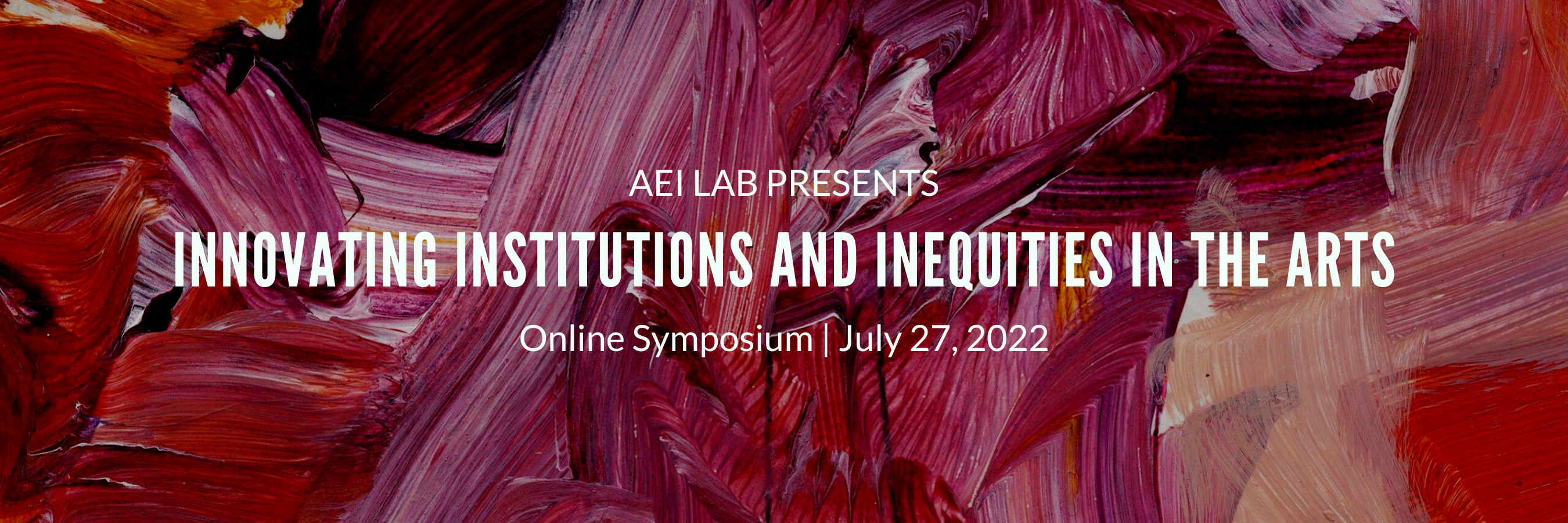
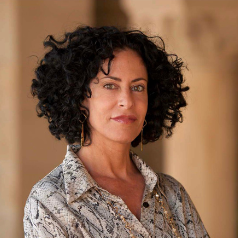
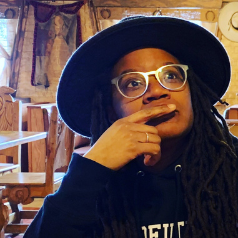

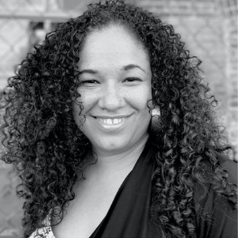
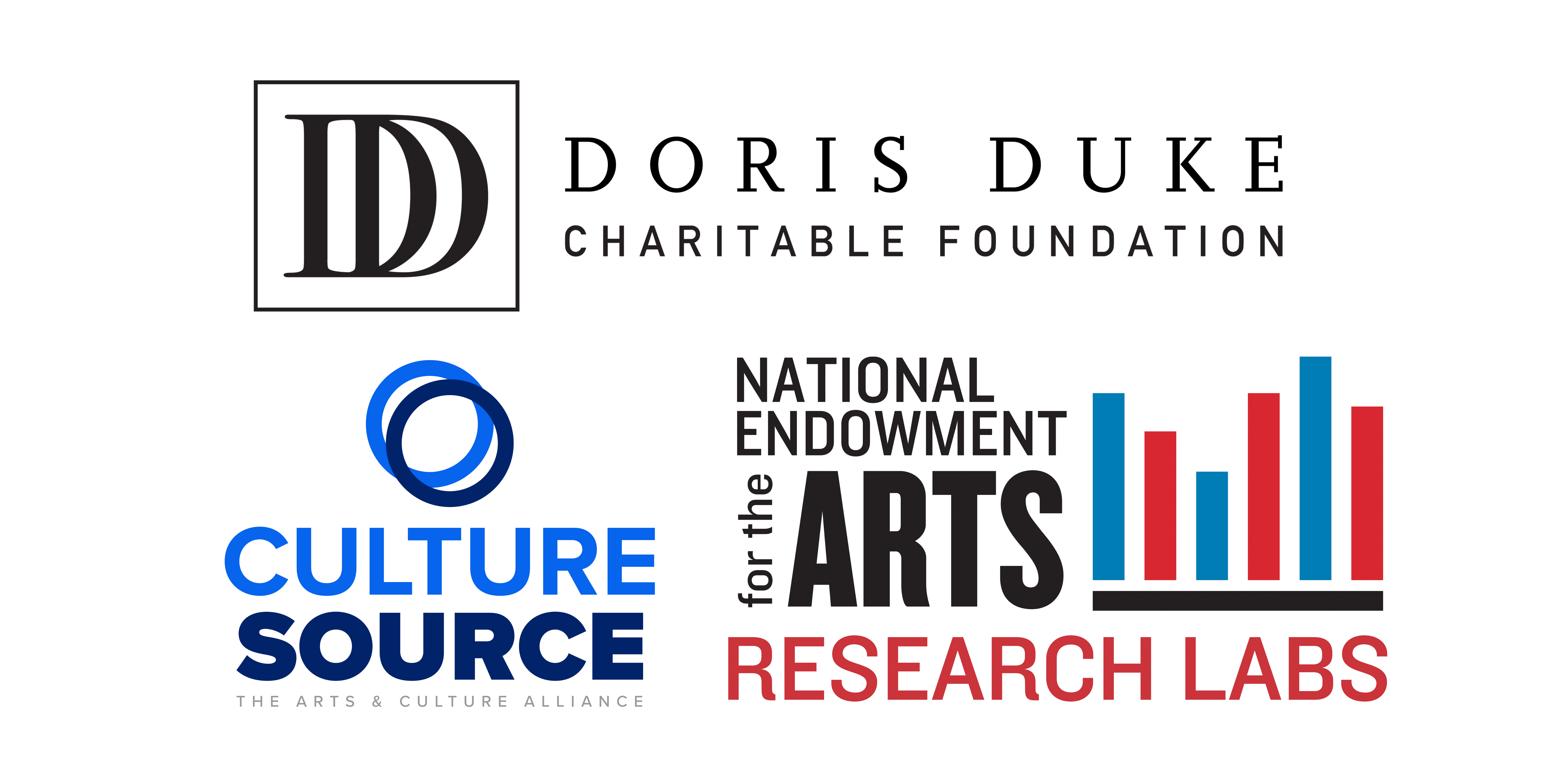 CultureSource is a member association serving cultural organizations and creative people across Southeast Michigan. As a regional service organization, we do this work through hosting professional development workshops that grow creative and leadership capacities, presenting programs that provide space for exchanging ideas about arts and culture, and leading initiatives that bring together stakeholders interested in the public accessing creative expression.
CultureSource is a member association serving cultural organizations and creative people across Southeast Michigan. As a regional service organization, we do this work through hosting professional development workshops that grow creative and leadership capacities, presenting programs that provide space for exchanging ideas about arts and culture, and leading initiatives that bring together stakeholders interested in the public accessing creative expression.